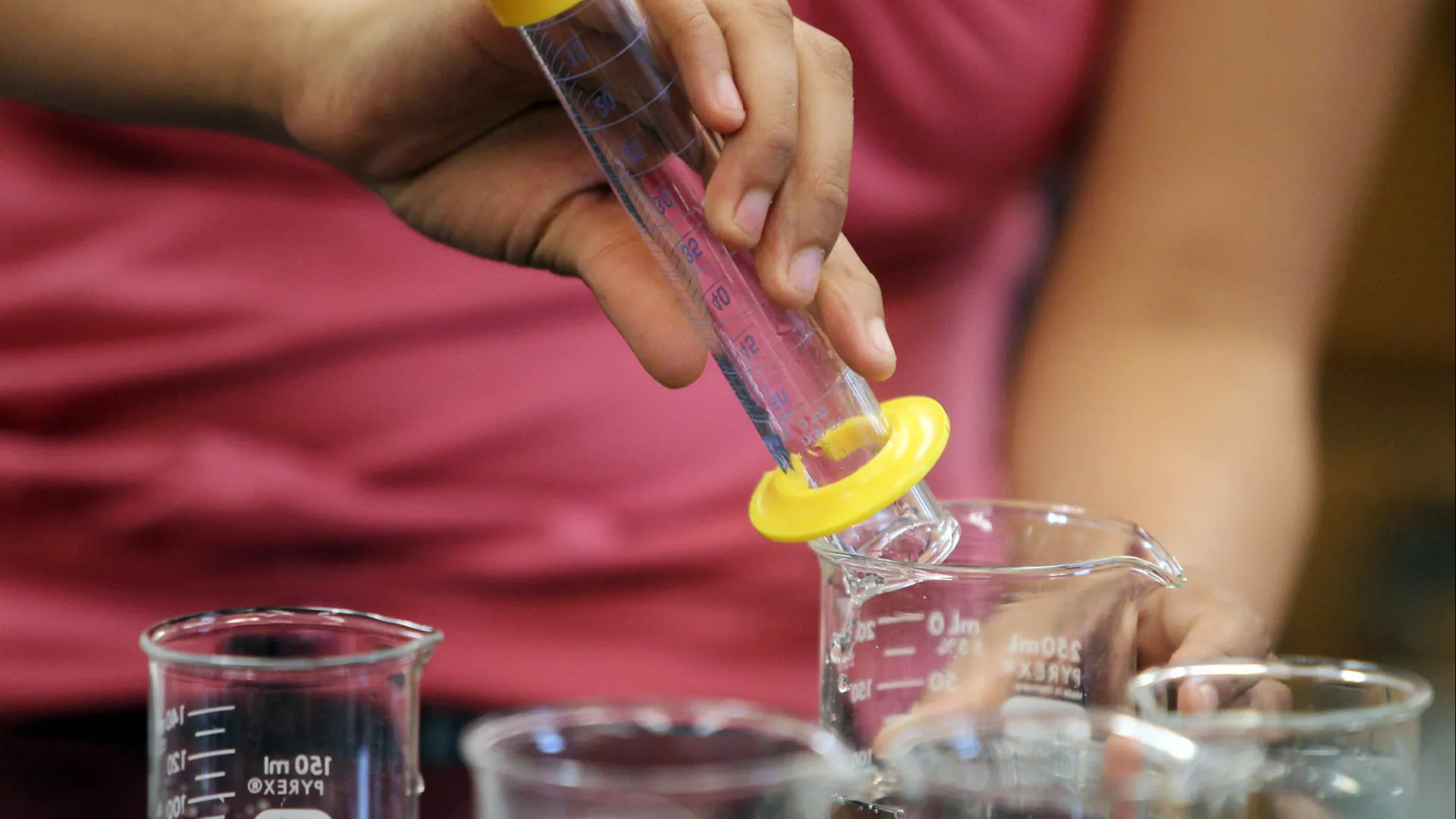Joe Gutierrez | Office of Strategic Communication | (909) 537-3007 | joeg@csusb.edu

Cal State San Bernardino has received a $2.45 million National Science Foundation (NSF) grant to investigate language-based challenges to students studying science, technology, engineering and/or mathematics (STEM) at the university.
The NSF grant is directed at Hispanic-Serving Institutions (HSI) such as CSUSB to improve undergraduate STEM education. Nationally, there are bottlenecks to student retention in undergraduate STEM fields. One bottleneck in particular is the discipline-specific academic language used in each of these fields.
Not only do STEM students need to acquire new knowledge and new skills, they need to absorb and use a new language in order to successfully complete their studies. This language acquisition bottleneck has meant that retaining students in these fields is a challenge.
“The goal of the project is to support student success and retention by developing institutional culture and infrastructure at CSUSB to support language-based challenges to STEM students, including multilingual English learner students,” said Michael Chao, professor and chair of the biology department at CSUSB. He serves as the grant’s principal investigator or PI.
Congressman Pete Aguilar, D-San Bernardino, who was instrumental in obtaining the federal funding approval, said the grant will not only help open doors for the minority community, especially for Hispanics and Latinos, but also offer support and advance diversity in STEM subjects.
“I want to break down barriers to entry for the Hispanic and Latino community in the STEM fields,” said Rep. Pete Aguilar. “The HSI Institutional Transformation Project will create a space that will help diversify the STEM fields. I’m proud to have helped play a role in facilitating this project and I look forward to seeing these students thrive.”
Chao recognizes that “multilingual English learners are also a significant portion of the population in the Inland Empire,” which makes CSUSB an ideal location for addressing the issue.
But the CSUSB student population also carries an inherent strength.
“They also bring tremendous assets with them in an increasingly multicultural world and global workplace,” Chao said. In fact, the broader impact of this project for the nation as a whole is that it will help develop a STEM workforce that reflects this diversity and leverages its multilingual assets. This will be essential for the United States to stay competitive in an increasingly multicultural world.
The project itself will support professional development for faculty and staff, build institutional resources for better understanding of CSUSB’s English learner student body, build relationships with high school districts that send students to the university’s STEM programs, and develop and research best practices to support academic language in student learning.
By taking a language and culture-focused approach to introductory STEM courses, CSUSB hopes to increase student retention in these classes and, ultimately, in the majors themselves.
“We are here to serve the students of the Inland Empire and the economic health of our region,” said Sastry Pantula, dean of CSUSB’s College of Natural Sciences. “This grant is a gamechanger for us. Building student success in STEM fields is a deeply held goal of our college, and the aims of the initiative directly address our students where they are. I am excited to see what we can accomplish.”
Pantula serves as a co-PI on the “HSI Institutional Transformation Project: Retention and Achievement for Introductory STEM English Learners” grant, as do Caroline Vickers, professor and interim associate dean of graduate studies, and Daniel Nickerson, an associate professor of biology.